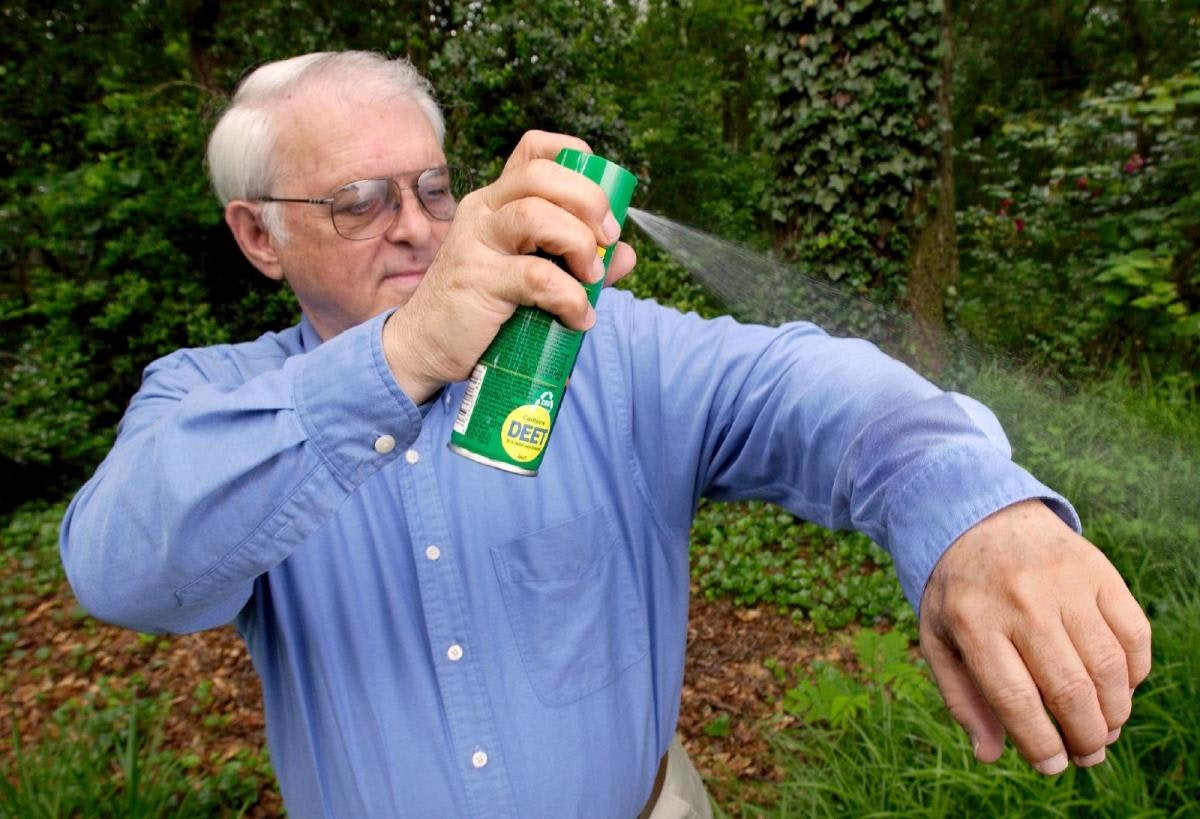Repellents

The Centers for Disease Control (CDC) recommends products containing active ingredients, which have been registered with the US Environmental Protection Agency (EPA) for use as insect repellents on skin or clothing.
All of the EPA-registered active ingredients have demonstrated repellency, however some provide longer lasting protection. Additional research reviewed by CDC suggests that repellents containing DEET, picaridin, or IR3535 typically provide longer-lasting protection than the other products. And oil of lemon eucalyptus provides longer lasting protection than other plant-based repellents. In general, the more active ingredient (higher concentration) a repellent contains, the longer time it protects against mosquito bites.
Q. Why should I use an insect repellent?
A. Insect repellents can help reduce exposure to mosquito bites that may carry viruses such as West Nile virus that can cause serious illness and even death. Using insect repellent allows you to continue to play and work outdoors with a reduced risk of mosquito bites.
Q. When should I use mosquito repellent?
A. Apply repellent when you are going to be outdoors. Even if you don't notice mosquitoes there is a good chance that they are around. Many of the mosquitoes that carry West Nile virus bite between dusk and dawn. If you are outdoors around these times of the day, it is especially important to apply repellent. In many parts of the country, there are mosquitoes that also bite during the day, and some of these mosquitoes have also been found to carry West Nile virus.
Q. How often should repellent be reapplied?
A. In general you should re-apply repellent if mosquitoes are biting you. Always follow the directions. Sweating, perspiration or getting wet may mean that you need to re-apply repellent more frequently.
Q. How does mosquito repellent work?
A. Mosquitoes are attracted to people by skin odors and carbon dioxide from breath. The active ingredients in repellents make the person unattractive for feeding. Repellents do not kill mosquitoes. Repellents are effective only at short distances from the treated surface, so you may still see mosquitoes flying nearby, but if they are not biting, then the repellent is working.
Q. How does the percentage of active ingredient relate to protection?
A. Typically, the more active ingredient a product contains the longer it provides protection from mosquito bites. But, 10% concentration of one product doesn't mean it works exactly the same as 10% concentration of another product.
Example based upon a study by Fradin and Day, 2002:
DEET Protection
- 24% 5 hrs
- 20% 4 hrs
- 7% 2 hrs
Precautions:
- Apply repellents only to exposed skin and/or clothing (as directed on the product label.) Do not use repellents under clothing.
- Never use repellents over cuts, wounds or irritated skin.
- Do not apply to eyes or mouth, and apply sparingly around ears. When using sprays, do not spray directly on face; spray on hands first and then apply to face.
- Do not allow children to handle the product. When using on children, apply to your own hands first and then put it on the child. You may not want to apply to children's hands.
- Use just enough repellent to cover exposed skin and/or clothing. Heavy application and saturation are generally unnecessary for effectiveness.
- After returning indoors, wash treated skin with soap and water or bathe. Also, wash treated clothing before wearing it again.
- If you or your child get a rash or other reaction from an insect repellent; stop using the repellent, wash the repellent off with mild soap and water, and call a local poison control center for further guidance. If you go to a doctor because of the repellent, take the repellent with you to show the doctor.
Other Information:
- A wealth of information can be found at the Centers for Disease Control (CDC) website, including types of repellent, how to use repellents, repellents and children, repellents on clothing and more: Repellents (CDC)
- The EPA (Environmental Protection Agency) has a webpage to obtain more knowledge about repellents for mosquitoes, ticks and other arthropods: Repellents (EPA)
- People who are concerned about using repellents may wish to consult their healthcare provider for advice. The National Pesticide Information Center (NPIC) can also provide information through a toll-free number, 1-800-858-7378 or NPIC
Repellent: Active Ingredients
- DEET (Chemical Name: N,N-diethyl-m-toluamide or N,N-diethly-3-methyl-benzamide)
- Picaridin (KBR 3023, Chemical Name: 2-(2-hydroxyethyl)-1-piperidinecarboxylic acid 1-methylpropyl ester)
- Oil of Lemon Eucalyptus (OLE)
- IR3535 (Chemical Name: 3-[N-Butyl-N-acetyl]-aminopropionic acid, ethyl ester)
- Para-menthane-diol or PMD; this is the synthesized version of oil of lemon eucalyptus.
- 2-undecanone
